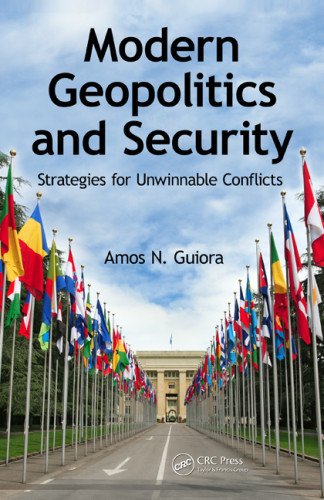

Most ebook files are in PDF format, so you can easily read them using various software such as Foxit Reader or directly on the Google Chrome browser.
Some ebook files are released by publishers in other formats such as .awz, .mobi, .epub, .fb2, etc. You may need to install specific software to read these formats on mobile/PC, such as Calibre.
Please read the tutorial at this link: https://ebookbell.com/faq
We offer FREE conversion to the popular formats you request; however, this may take some time. Therefore, right after payment, please email us, and we will try to provide the service as quickly as possible.
For some exceptional file formats or broken links (if any), please refrain from opening any disputes. Instead, email us first, and we will try to assist within a maximum of 6 hours.
EbookBell Team

4.8
24 reviewsThe transformation from traditional war between nation-states to conflict between nation-states and nonstate actors requires decision makers, policy analysts, military commanders, intelligence officials, and legislators to answer the question: is there a strategy for an unwinnable conflict? This question takes on particular urgency given the extraordinary number of conflict points that define the current state of international relations.
Modern Geopolitics and Security: Strategies for Unwinnable Conflicts draws on the author's extensive experience in counterterrorism, negotiation, and the implementation of the Oslo Peace Process with his more recent work in academia. The book uses an interdisciplinary case study model to illustrate valuable lessons learned and best practices in strategic analysis and decision making that are based on international relations, international law, and negotiation/intervention.
The book defines sovereignty, intervention, geopolitics, security, and what they mean in a global landscape. It examines historical examples of global crises and security concerns as well as contemporary geopolitical issues, including the Israeli-Palestinian conflict, intervention in Libya, non-intervention in Syria, the Good Friday Agreement, the conflict in the former Yugoslavia, and the Arab Spring.
We are entering a new era, where disaffected individuals who are willing and able to act, have more power and potential influence than ever before. Conflicts like those occurring in Egypt, Syria, Afghanistan, Iraq, Israel, and elsewhere are all complex organisms—nuanced as never before. Add in increasing regional asymmetrical conflicts, increasing global economic strain, social media and the accelerating speed of communication, ideological and regional state versus nonstate conflicts—such as in the case of al-Qaeda and other such movements—and traditional "business as usual" geopolitics is being somewhat turned on its head.
Modern Geopolitics and Security addresses topics that aren’t currently covered anywhere–establishing a new paradigm to rethink modern geopolitics, given new and emerging challenges to traditional schools of thought.